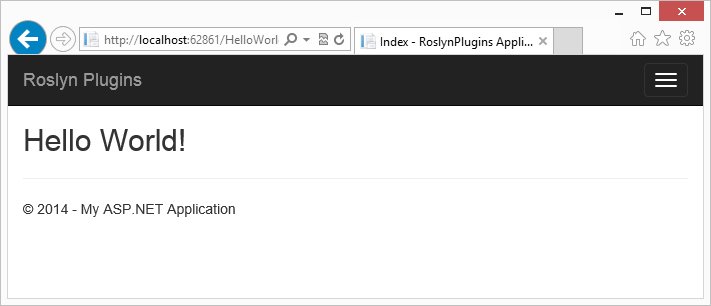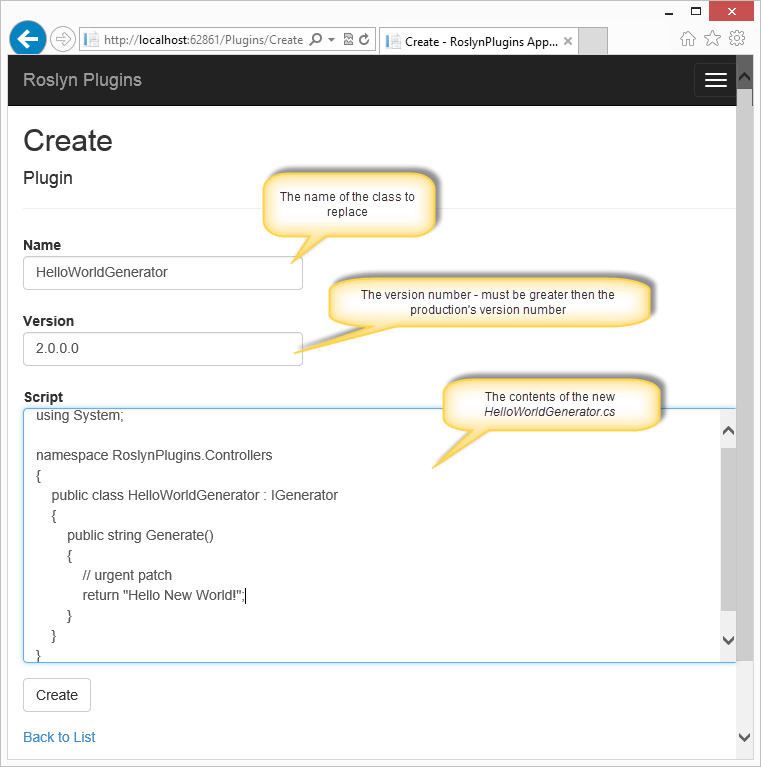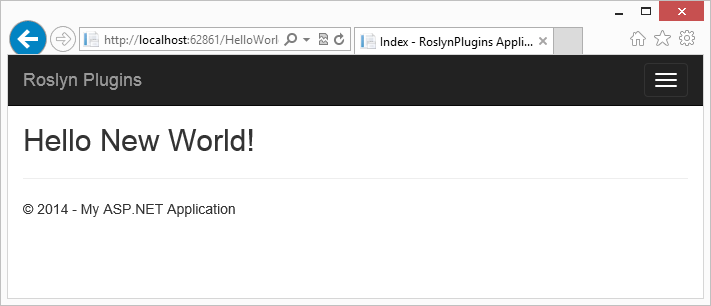Previously: Part 1: The Goal
The solution
The code for the example is available on GitHub.
How it looks
So here’s the Hello World page in production:
 .
.
We navigate to the plugins view and create a new replacement for the HelloWorldGenerator:
 .
.
Without restarting, we can return to the HelloWorld page and see that the new class is being used because the output has changed.
 .
.
If you delete the row from the plugins page, the behaviour reverts to the original implementation (the code that was originally shipped with production).
Basic project setup
First, I created a new ASP.NET MVC 5 application. I added a HelloWorldContrroller and a View. I added a Plugin model and corresponding views. To get started I followed the tutorial here (http://www.asp.net/mvc/tutorials/mvc-5/introduction/getting-started). Once I had the basics in place, I added the following NuGet packages.
Stable
- EntityFramework
- Ninject
- Ninject.MVC5
- Ninject.Conventions
Pre-release
- Microsoft.CodeAnalysis.CSharp
The Microsoft.CodeAnalysis.CSharp is the ‘Roslyn’ package. It is still in beta, so you have to switch to the pre-release.
Next we’ll look at the dependency injection part in more detail.